|
Mission 2013 contact information
Mentors & Teams
| Team 1: Bob Gurnitz |
rgurnitz@alum.mit.edu |
508 627 3882 |
More info... |
| Team 1: Sheldon W. Buck |
sheldon.buck@comcast.net |
781-235-9585
|
More info... |
| Team 2: Lowell Anderson |
lra@alum.mit.edu |
|
More info... |
| Team 2: Sujeesh Krishnan |
sujeesh@alum.mit.edu |
|
More info... |
| Team 2: Hal Gustin |
hlgustin@structint.com |
720-320-6722 |
More info... |
| Team 3: Keith MacKay |
quisp@alum.mit.edu |
617.695.1935 |
More info... |
| Team 3: Alfredo Kniazzeh |
alfredok@alum.mit.edu |
781-891-9937 |
More info... |
| Team 4: Samuel Friedmann |
juliolara@alum.mit.edu |
|
More info... |
| Team 4: Hal Gustin |
hlgustin@structint.com |
720-320-6722 |
More info... |
| Team 5: Burl Amsbury |
bamsbury@hotmail.com |
|
More info... |
| Team 5: Yolanda Fan |
yolanda@mit.edu |
410-858-3784 |
More info... |
| Team 6: Peter Ralston |
pralston@alum.mit.edu |
|
More info... |
| Team 6: Stephen Estes-Smargiassi |
Stephen.Estes-Smargiassi@mwra.state.ma.us |
|
More info... |
| Team 7: Todd Harland-White |
todd@alum.mit.edu |
410-757-8020 |
More info... |
| Team 7: Dr. Jorge Phillips |
jp@alum.mit.edu |
919-395-1580 |
More info... |
| Team 8: Johnny Yang |
jtyang@sloan.mit.edu |
781-810-2100
|
More info... |
| Team 8: Bhupandra Khetani |
bhupk@yahoo.com |
|
More info... |
| Team 8: Paul D. Jacobson |
pjacobson@alum.mit.edu |
508-548-7945 |
More info... |
 Lowell Anderson
Lowell Anderson
lra@alum.mit.edu
Manager, Shoshone Municipal Pipeline
MIT year: 1959 (Electrical Engineering)
Beginning in 1988 I oversaw the construction of 70+ miles of transmission pipeline and a 16.5 MGD water treatment plant. As construction came to completion in 1991 I hired a crew and since that time I have overseen the operation of same as well as upgrades to keep things up to date. We supply water to six municipalities and to eight rural water districts.
I have followed in the news various water problems and suits for many years. I am originally from Riverton, Wyoming, which is surrounded by the Wind River Indian Reservation. The two tribes on the reservation instituted a lawsuit over water that took many years to settle.
I live in the area served by the Cody Canal Irrigation District and I have been involved in their meetings and adjudication of water rights. I have been involved in petitions to the Wyoming Board of Control concerning the transfer of water rights. Here in Wyoming we are at the headwaters of the rivers leaving the state.
This year I attended the Wyoming Water Law Institute.
|
Back to
the top |
 Yolanda
Fan Yolanda
Fan
yolanda@mit.edu 410-858-4784
Occupation: Entrepreneur
MIT year: 2002 Education: B.S. Chemical Engineering, B.S. Biology
After graduating from MIT, Yolanda worked at MIT's Technology Licensing Office before ultimately starting a real estate investment company in Baltimore, MD. She's since sold that company back toher partners and is looking for her next venture. She enjoys creative problem solving and is particularly interested in this year's topic.
This is Yolanda's fourth year as a 12.000 mentor -- some of her other MIT alumni activities include leadership in her class, the Club of Baltimore, and fund raising.
Since she lives in Honolulu, most communication will have to be via email or phone.
|
Sheldon W. Buck
sheldon.buck @comcast.net Phone: 781-235-9585
Occupation: aeronautical engineer
MIT year: 1958
Education: Bachelors
I was a mentor for Mission in 2000, 2002, 2003, 2004, 2005, and 2006, and 2007.
I am an Aero/Astro grad class of 1958. Worked at the MIT Instrumentation Laboratory 1957 to 1973 followed by The Charles Stark Draper Laboratory 1973 to 2000 when I retired. I was assigned to the Earth and Planetary Science Department for 5 years 1968 to 1973 working with Prof. Frank Press and Prof. Nafi Toksoz. I was Technical Director of the Lunar Traverse Gravimeter experiment which flew on Apollo 17 and was a member of the lunar surface EVA team at mission control during the flight.
Designed stable platforms for inertial guidance systems. Designed seismic monitoring systems for earthquakes and underground explosions. Designed gravimeters for lunar exploration. Designed special purpose instrumentation for submarines and oceanography. |
Back to
the top |
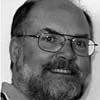 Hal
Gustin Hal
Gustin
hlgustin@structint.com 720-320-6722 website: www.structint.com
Occupation: Engineer
MIT year: 1973
This will be my fourth year as an alumni mentor to the 12.000 class. The first three have been energetic, stimulating, and a lot of fun.
I love the premise of the class.
- Identify a problem that is huge, difficult (almost intractable), with major implications for the world.
- Assign it to a group of people with immense ability but no or very little exposure to the conventional ways of looking at the problem.
- See what they come up with.
Each year, I’ve tried to help out however I can, not being myself an expert on whatever the topic is. In the process, I’ve learned a lot, had an exciting ride, and made some friends. I’ve also answered a lot of e-mails at 3 am. I look forward to more of the same this year. |
Back to
the top |
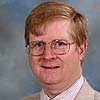 Todd
Harland-White Todd
Harland-White
410-757-8020 (home) todd@alum.mit.edu
410-260-5180 (office) todd.harland-white@ngc.com
Todd Harland-White's career since MIT (XIII-C, '76) has involved
designing and building manned and unmanned systems operating in
the deep sea for Northrop Grumman Undersea Systems, where he is
now Chief Architect. Projects have included design of deepsea research
submersibles and mini-subs, participation in teams designing new
submarine and surface ship classes, developing underwater robotic
systems, and working with optical and acoustic sensors and sensor
networks for probing and mapping the underwater space. All of these
efforts have been highly inter-disciplinary not only in the breadth
of technical issues but also in the politics and budgeting required
to initiate and complete the projects - as is typical of most real
problems.
This is Todd's ninth tour of duty as a 12.000 mentor, having served
for Missions 2005 through 2012. Todd also serves as an MIT Educational
Counselor possibly responsible for some of you being there at MIT
to begin with!
Todd has managed to visit one or two of the classes, but usually
he will have to do everything long distance from Annapolis MD via
email and website review. |
Back to the
top |
 S. Julio Friedmann S. Julio Friedmann
SM Course 12 1990; SB Course 21 1988
I studied sedimentology and stratigraphy with John Southard and John
Grotzinger, working in the Death Valley area, the outback of
Australia, and the Bldg. 20E flume lab. Ultimately, I'm a field
scientist, although I've been out of the field for the past few years.
After my Ph.D. (Univ. So. Cal), I worked for ExxonMobil and
university of Maryland before ending up in my current job. I've thus
worked in industry, government, and academia. My undergrad degree was
in music.
Julio is one of the most widely known and authoritative experts in the
US on carbon capture and sequestration and underground coal
gasification. In his current appointment as Carbon Management Program
Leader for Lawrence Livermore National Laboratory, he leads
initiatives and research into carbon capture, carbon storage, and
fossil fuel recovery and utilization. In this role, he has testified
before the US house, Senate, and several state legislatures, published
in Foreign Affairs and the New York Times, and worked with the EPA,
USGS, many private companies, many NGOs, and Dept. of Energy. He is a
principle co-author on the MIT “Future of Coal Energy” Report, the
National Petroleum Council report “Facing Hard Truths”, and the World
Resources Institute “CCS Guidelines” report. Julio has led technical
work on In Salah, Weyburn, Sleipner, and large CCS projects in China.
Julio received his B.S and M.S. degrees from M.I.T., followed by a
Ph.D. at the Univ. So. California. After graduation, he worked for
five years as a senior research scientist in Houston, first at Exxon
and later ExxonMobil. He next worked as a research scientist at the
Univ. of Maryland, collaborating with the Joint Global Change Research
Institute (JGCRI) at the Univ. of Maryland, and the Colorado Energy
Research Institute at Colorado School of Mines. His research interests
include carbon sequestration, underground coal gasification,
hydrocarbon systems, deep-water depositional systems, basin & range
tectonics and sedimentation, sequence stratigraphy, and landslide
physics. A native of Rhode Island, he has worked in CA, WA, UT, WY,
CO, Spain, Ireland, the North Sea, Nigeria, Angola, Venezuela,
Azerbaijan, and Australia
|
Back to
the top |
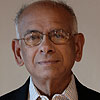 Bhupendra Khetani Bhupendra Khetani
This is Bhupendra’s first year of participation in the Mentor Program.
Bhupendra’s educational background is all in chemical Engineering at MIT, where he received S.B (1960), S.M (1962) and Chemical Engineer (1963) degrees. His work experience in actual technical developments was during the early years after MIT in the field of plastic packaging products at the Monsanto Company.
He soon gravitated to manufacturing and finance, which were always his primary work interests. At his next employer, Owens-Illinois, at the time the world’s largest packaging company, he was focused on managing technical developments in plastic packaging products leading to full scale manufacturing operations and green field factory start ups. He has extensive experience in the field of technology licensing and was responsible for development of a vast network of licensees and strategic affiliations at Owens. In the last 15 years or so of his career, he worked nearly exclusively in merger and acquisitions activities for his company, ending as the director of Corporate Planning. He believes that among other possible contributions, he could mentor and work with the student teams in understanding the financial implications and operational trade-offs that are nearly always necessary in successful commercial implementations of technology solutions.
|
Back to the
top |
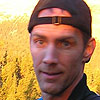 Burl Amsbury Burl Amsbury
Burl earned a bachelor’s degree and his first master’s degree at the Massachusetts Institute of Technology (MIT), where he studied engineering and honed his critical thinking skills. His second master’s was from MIT’s Sloan School of Management, in a program called System Design and Management (SDM). SDM is focused on the design and management of complex systems, lean operations, and general business. Between master’s, he joined the U.S. Navy as an A-6E Intruder pilot, qualifying as a mission commander and surviving 301 carrier landings and learning much about discipline and service. His love for the West finally brought him to Colorado, where he has participated on executive teams in a series of technology start-up companies. Burl has come away noticing one clear common theme: Every problem is a people problem, whether it initially seems that way or not…and every solution is a people solution.
sMy background is in system dynamics – complex systems and feedback loops.
And my passion is sustainable agriculture (and therefore the entire sustainable food value chain), so when it comes to carbon sequestration, I am interested in the link to biomass sequestration.
Current projects:
- Ops management contracting
- Residential solar system sales
- Sustainable food system buyer/seller matching and logistics
|
Back to
the top |
Alfredo
Kniazzeh
alfredok @alum.mit.edu 781-891-9937
Occupation: scientist, retired
MIT year: 1959
Education: Doctorate
35 yrs product development at Polaroid: Mechanical Eng, Physics,
Chem. Eng, Materials, 13 patents. Previously NASA and US Army.
Travels: Oaxaca, Baltic capitals, Turkey, Costa Rica, W Europe,
B Virgin Islands, Bogota. Visited Nawlinz. Hobbies: ballroom dancing,
Arg. tango, biking, choir singing, cooking.
|
Back to
the top |
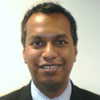 Sujeesh Krishnan Sujeesh Krishnan
sujeesh@gmail.com
This is Sujeesh’s first year in the Mentor Program. Born in India, Sujeesh has studied and worked in India, Kenya, Australia, Europe, and the U.S. His hobbies include travelling, reading, and golf.
Sujeesh has a B.E. (Hons.) in Mechanical Engineering from the Birla Institute of Technology and Science, India. Post his Bachelor’s degree, Sujeesh moved to the U.S. and obtained a M.S. in Manufacturing Systems Engineering from the University of Wisconsin, Madison. He then spent 4 years working at a supply chain optimization software company called i2 Technologies in a variety of positions including technical implementation, business strategy, and product management. He then became quite interested in the business aspects of organizations and consequently did his MBA at MIT-Sloan with a focus on strategy and entrepreneurship.
After getting his MBA, Sujeesh joined a start-up in the Boston area called GetConnected that was in the business to enabling retailers to sell telecom services. Here Sujeesh was responsible for managing a number of key client relationships, delivering a number of new product offerings to the market, and corporate strategy. Upon leaving GetConnected, Sujeesh joined Ernst ∧ Young and spent 3 years providing transaction advice to private equity firms and corporates looking to make acquisitions.
Sujeesh is currently with an organization called the Carbon Trust which focuses on working with businesses and organizations to drives towards a low carbon economy. Sujeesh leads the company’s supply chain and product carbon footprinting work in North America. |
Back to
the top |
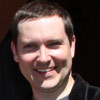 Keith
MacKay 617.543.5644 fax: 617.695.1935 Keith
MacKay 617.543.5644 fax: 617.695.1935
email: quisp @alum.mit.edu
website: http://www.villagesoft.com
Occupation: Managing Director, Software Company
MIT year: 1997
Education: Bachelors
Originally class of 1990, I took several years off to explore
various interests, including: participating in a band, consulting
to various corporations and the U.S. Dept. of Energy, traveling
in Great Britain, Japan, and throughout the U.S., spending a semester
in a political science program at the University of London, writing,
etc. When I decided to return and finish my MIT degree, I first
circled everything in the Course Catalog that seemed interesting,
and Brain and Cognitive Sciences was the best fit...so I wound
up graduating with a B.S. in B&CS. While at MIT before my
hiatus, I was in a fraternity (served as Steward, Alumni Chair,
President), on the gymnastics team, and in the Logarhythms. After
my break, I was working fulltime and going to school fulltime.
Much of my professional life has involved exploration of systems
problems of one sort or another. I worked in a restaurant in
high school, and was always fascinated by how it was necessary
for all of the individual components to be functioning for things
to run smoothly. During my time off from MIT, I spent time at
Lawrence Livermore National Lab in the Earth Sciences department,
developing expert systems software to analyze seismic events
to help decide if events were earthquakes or underground nuclear
tests. I have modeled industries (offshore oil-drilling industry,
aluminum smelters) and various financial systems (options models,
investment simulations, etc.) for customers including Harvard
Business School, Mercer Management Consulting, and many others.
My current role as Managing Director of Village Software requires
keeping a lot of balls in the air, and organizational systems
thinking is a key skill to make this (almost) manageable <g>.
I spent last year serving as President of the MIT Club of Boston,
which required learning an entirely different set of technical,
political, and management skills--and integrating information
received from many quarters to develop plans that would best
serve the 17,000+ MIT alumni in the Greater Boston area.
These experiences have all contributed to my diverse worldview,
which I have found is often as important to problem-solving
as specific domain knowledge. I believe that this is especially
true when approaching complicated problems that are as-yet unsolved
(after all, if domain knowledge alone was enough, current subject-matter
experts would have the problem--whatever it is--licked). Instead,
complex problems require creative thinking, productive collaboration
with many parties (to increase the knowledgebase and idea pool
as large as possible), a realistic understanding of the political
realities of the situation, and flexibility enough to adapt
the solution as new information is received.
I'm looking forward to working with all of you as we explore
this important problem.
|
Back to the
top |
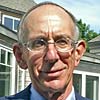 Robert Gurnitz Robert Gurnitz
Bob has been a Mentor for 12.000 for the past six years. He also assists Sam Bowring in working with and providing support for the other mentors. Bob is President of the MIT Club of Southwest Florida. Additionally he is on the Board of Directors of Habitat for Humanity of Collier County (Florida). His hobbies include astronomy and sailing.
He is a Chemical Engineer by education (S.B., S.M., Ph.D., MIT). Bob briefly taught at MIT prior to going into the Aerospace Industry. He then spent a year in the President’s Executive Interchange Program in Washington working at the Department of Health, Education, and Welfare. Upon returning to Rockwell International, he subsequently held various positions leading to becoming President of their Passenger Car Components Business. Upon leaving Rockwell, he become President of Bethlehem Steel’s Structural Components Business. His subsequent positions included President of Webcraft Technologies, Chairman and CEO of Northwestern Steel and Wire, and Chairman of Envirosource. |
Back to
the top |
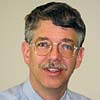 Stephen Estes-Smargiassi
Stephen Estes-Smargiassi
Director of Planning, Massachusetts Water Resources Authority
Stephen.Estes-Smargiassi@mwra.state.ma.us
Occupation: planner and engineer
MIT year: 1979 (Civil Engineering)
Education: CEE (MIT), Planning (Harvard)
Stephen Estes-Smargiassi is a planner and an engineer. Throughout his career, he has focused on gathering and managing multi-disciplinary teams to design and communicate complex projects to the public. He has a Bachelors of Civil Engineering from Massachusetts Institute of Technology and a Masters in City and Regional Planning from Harvard University. He lives in Boston where the streets donít follow old cowpaths, although they seem to, loves maps, and has two kids who also love maps. And he proudly drinks tap water, at least in Boston.
In his 20 years at the MWRA, the regional wholesale water and wastewater provider for the Boston metro area, he has lead or participated in all MWRA drinking water quality initiatives, including treatment decisions for corrosion, microbial and disinfection byproducts control; and outreach and coordination with local and state health officials. He is active with the AWWA Research Foundation, is a QualServe peer review team leader, and has actively participated in water quality regulatory development activities regionally and nationally.
As part of his responsibilities he managed the MWRA's successful demand management programs, reducing water demand by over 100 mgd; initiated its GIS system; and coordinated protection planning studies for the 400 square mile Quabbin, Ware River and Wachusett reservoir watersheds, as well as about 40 other smaller supply systems in the metropolitan area. His group is currently producing an integrated master plan to prioritize and schedule improvements to the regionís water and sewer systems.
He has overseen MWRA's collaborative efforts to understand and communicate the risks of lead in drinking water since 1993, and has been active in regional and national efforts to review and revise the Lead and Copper Rule.
He developed the briefing materials used by MWRA's Board of Directors to make
the treatment technology decision for the metropolitan Boston water system and
then participated in the successful defense of that decision in federal court.
He is responsible for producing and distributing MWRA's annual water quality
report to over 800,000 households, as well as monthly public reports, and using
those
opportunities to reinforce the bridges built over the past decade to the public
health community. He is currently coordinating drinking water quality and public
health outcome research to understand and evaluate the recently completed treatment
improvements.
|
Back to
the top |
Dr.
Jorge Phillips jp@alum.mit.edu
919-395-1580
MIT year: 1972
Education: Doctorate
Dr. Phillips holds a B.Sc. degree from MIT in Computer Science as well
as two M.Sc. and Ph.D degrees in Electrical Engineering and Computer
Science from Stanford University in the areas of computer systems,
artificial intelligence and management. A successful entrepreneur for over 20 years in
Silicon Valley, the East Coast and overseas, he has had a lifelong
interest since his MIT years in complex social and physical systems,
appropriate technology, politics and policy making, the environment
and social development. Dr. Phillips has held Cabinet level government
positions in Colombia and diplomatic positions in Europe, as well as
academic appointments in the US, South America and Europe. He is a
founding member of the Children's Museum in Bogot·, Colombia and of
the International Center of Physics in Colombia, and member of the
Eta Kappa Nu and Sigma Xi national honorary societies to
which he was inducted as an undergraduate at MIT. He is a patented
inventor with registered software patents in the US, Japan and Europe,
and lives in the Research Triangle area in North Carolina,
where he is currently involved in high tech startups, management consulting,
academia and other entrepreneurial efforts.
|
Back to
the top |
|
Back to the
top |
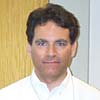 Peter Ralston Peter Ralston
Ralston@alum.mit.edu
Occupation: Project Manager, Environmental Data, Massachusetts Water Resources Department
MIT year: 1992
Education: Bachelor's (Whitman College), Masters in Urban Studies and Planning, (MIT)
I lived in Portland, Oregon while in high school and attended and graduated from
Whitman College in the state of Washington, so I'm acquainted with the culture,
terrain, and climate out that way. Although it's been now 26 years since I lived
there, some things haven't changed very much -- as you note, water has always
been a source of concern in the American West, and now population pressures have
increased demand for fresh water, so concern is (or should be) greater than in
the past.
After graduation from Whitman, I worked at Common Cause, a public interest lobby
in Washington, DC, so I'm pretty familiar with advocacy politics. I did computer
work, not direct advocacy, while there. Still, the organization was small enough
that in a sense everybody participated in lobbying, as the leadership made sure
that all staff and volunteers were fully informed of developments on the agenda
issues of campaign finance reform, government ethics, and tax reform, among others,
as lobbying efforts progressed.
As a Masters student at the Department of Urban Studies and Planning, I tried
to bring together my interests in computing and environmental planning, something
the faculty in different parts of the Department weren't quite ready to support
as much as I would have liked. (I think things are better now.) Still, I liked
and still like the challenge of bringing together the philosophical, values part
of environmental planning with the more technical requirements of computing.
I've found that information management provides a very practical link between
these two activities, because it usually makes no sense at all to collect†data
unless you know what you intend to do with it. So, institutional means and ends
are very much tied together in information management.
I did my thesis on water conservation at MIT in hopes of tackling a practical project that might actually do some good for the Institute. I came up with some indexes for water usage by type of space (office space, lab space, residential space) on campus that may or may not have given some useful information to the Facilities staff. Of far greater importance to me, I learned some very basic things from a liberal arts kind of perspective about utilities data for infrastructure that bore fruit a few years after I began work at MWRA.
I've worked at MWRA since I graduated from MIT in 1992. I started in the Environmental
Quality Department by providing technical assistance for an Oracle database that
holds records about the health of water, sediments, and fish in Boston Harbor,
harbor tributaries, and Massachusetts Bay. Some of my time was given to bureaucratic
politics in order to get scientists in the department adequate computers and
software so that they could do a better job of evaluating the data that they
collected. Computing infrastructure at the Authority was†kind of primitive at
that time. Eventually, my job included some work in summary internal reporting
on water quality in the harbor. After six years, I moved into a position in Waterworks
Operations, where I did more work on reporting, this time internally and externally,
concerning drinking water quality. This position kind of bridged operational
work with policy work on the fresh water side of the organization. After four
years of that, I moved back to the Environmental Quality Department, where I've
spent more time doing database programming than reporting, although recently
I've been involved in some planning efforts led by the Massachusetts Ocean Partnership
that concern data management for information about Massachusetts open waters.
This work has required me to read some of the literature about sustainability,†adaptive
management, and ecosystem-based management -- chiefly some articles by C. S.
Holling and Carl Walters, although I am now turning to some books by Holling,
as well as Peter Rogers' introductory text on sustainable development.
I guess that throughout I've been concerned to try to make data about water quality as accessible and comprehensible as possible, true to my Common Cause training about openness in democratic government. I also try to make things simple. Sometimes I even get that right.
My latest venture has been to return to school part-time while remaining at MWRA
as a part-time employee. I'm attending BU's School of Theology in order to learn
more about -- and, I hope, develop -- some thoughts concerning ecological ethics
in the context of the relationship(s) between religion and science. So far, this
has involved taking†one course on social ethics and another specifically on ecological
ethics. In the social ethics class, I worked with two other students to prepare
a presentation on water rights -- not legal water rights only, but also water
as a human right. We concluded that access to water was a human right, and that
water was not primarily to be considered a commodity, but recognized in a general
way that sometimes delivery of water by regulated private businesses may be more
efficient and effective than supply by government organizations. Since then,
I've worked to gain more background in theology as against ethics, this time
with an interest in learning about Christian theological attitudes toward the
natural world as grounding for ecological ethics. (I was pleasantly surprised,
and sometimes astonished, to learn that theological resources in this area are
much more rich than I expected, so I have good prospects over time for developing
some useful intellectual work that will back up my planning practice.)
The (maybe too ambitious) goal is to bring three things together -- theological ethics concerning the environment, urban environmental planning, and efficient management of water quality data -- in order to do a sound job as a city planning professional. I have a lot still to learn and to do if these things are going to pay off in practical ways in my capacity at MWRA.
|
Back to
the top |
|
|
Back to
the top |
 Johnny
Yang Johnny
Yang
jtyang @sloan.mit.edu 781-810-2100
Class of 2004, SB, Course 15
Johnny was one of the first guinea pigs to participate in 12.000:
Solving Complex Problems. As a student in Mission 2004 (Mars),
he was a member of the "Mission Control" team, and later took
part in writing and editing the mission's final paper. Because
he loved 12.000 so much, he joined the staff for the class, serving
as a Undergraduate Teaching Fellow (UTF) for Mission 2005 (Ocean)
and Mission 2006 (Amazon). Due to class conflicts, Johnny was
not able to return as a UTF for Mission 2007 (Alaska); however,
the powers that be snuck him in as an alumni mentor.
After graduating with a Course 15 degree in 2004, Johnny has returned
to be a mentor for Mission 2009 (Tsunami), Mission 2010 (Ocean),
and now returns again as an alumni mentor for Mission 2011 (Oceans).
He currently works for an early-stage software company in Waltham,
MA.
Personally, Johnny enjoys traveling (to the extent his pocketbook
allows), reading (anything and everything under the sun), and
"wining and dining." He looks forward to working with his team
and the entire class as a whole. |
Back to
the top |
Paul D. Jacobson
pjacobson@alum.mit.edu
508-548-7945
This is Paul's first year as a Mentor for the 12.000 program.
Paul graduated from MIT in 1960 (Course III, Metallurgy) and received a Master's degree in Metallurgy from the University of Sheffield in England (’62).
After two years at the Martin Company (now Martin Marietta) working on materials for heat shield components critical to re-entry of spacecraft, Paul joined the General Electric Company. At GE, he worked on development of both hard and soft magnetic materials for use in electrical metering devices. Dating back to the 1970's he worked on materials for use in time-of-day metering – now referred to as Smart Grid technology. During his last decade at GE he developed and managed programs on Quality Assurance with emphasis on statistical methods.
Following his retirement from GE, Paul engaged on a “second career” teaching at community colleges in New Hampshire and Maine, and currently at Cape Cod Community College. He teaches micro- and macroeconomics, and statistics. In addition, he helps students in mathematics and science at the college tutoring center.
Paul is looking forward to working as a mentor in this challenging and critical program, and in returning to Tech to join in on stimulating analyses and discussions. |
|
|
Back to
the top |
|
|
|









